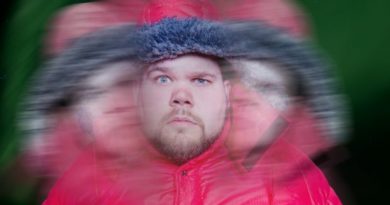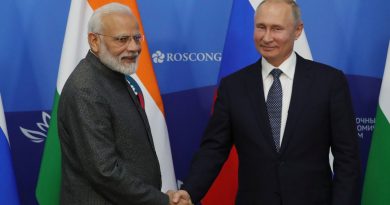Blog: The Arctic Circle – Denizen of the North, make way for corporate development

The Arctic Circle Assembly will soon be convening in Reykjavik, Iceland for the second time ever.
The conference is the brainchild of Icelandic President Olafur Ragnar Grimsson, former Prime Minister of Greenland Kuupik Kleist, and media mogul Alice Rogoff, the publisher of the Alaska Dispatch (where this blog is occasionally syndicated). President Grimsson is more of a figurehead in Iceland than a leader with decisive political powers; for the most part, those lie with the prime minister. Yet he has still managed to become a big booster for turning Iceland into an important Arctic state. Grimsson is keen to curry interest in the now financially-solvent North Atlantic island nation. He has, for interest, few qualms about inviting Asian investment, unlike others in Icelandic government.
Given the president’s personal enthusiasm for the Arctic Circle project and the fact that Iceland is easier to reach than Alaska for Europeans and even many from the East Coast, the conference’s Icelandic backers have to come to dominate. While this year’s meeting was initially slated to take place in Anchorage, it is instead taking place in Reykjavik, which will continue to serve as the host city every year.
Politicians to speak at conference
Arctic Circle brings together many political and economic movers and shakers from both within and outside of the region. This year, German Chancellor Angela Merkel will deliver a video message , and Jose Angel Gurria, the Secretary General of the OECD, will come to talk in person. Last year, former U.S. Secretary of State Hillary Clinton gave a video address, while Google even sent its Executive Chairman, Eric Schmidt, to speak. Investment firm Guggenheim Partners is a big sponsor of the conference. Shell, ExxonMobil, Daewoo Shipping (Korea) and COSCO (China) will all have envoys, too. “Sustainable development” and “corporate social responsibility” are catchphrases that I expect will be thrown around a lot at the conference, but the real motto actually seems to be corporate development of the Arctic.
Arctic Circle is pretty much the opposite of more academic meetings like the International Congress of Arctic Social Sciences (ICASS) VIII, which took place in the run-down former logging town of Prince George, British Columbia last spring. By contrast, Arctic Circle is situated in the effortlessly charming city of Reykjavik inside the beautiful Harpa concert hall, which the government spent 27 billion ISK ($222 million in today’s dollars) to build at the height of the recession. ICASS, whose location changes every time it convenes every three years, took place at the University of Northern British Columbia some miles from the center of town, where a short hike into the woods led one delegate to a chance encounter with a bear. When I wandered through downtown looking for dinner one night, I encountered the bleak sight of several burnt down and abandoned buildings and a lone inebriated First Nations individual. This was no town for the rundturs of the sort that take place in Reykjavik each weekend, let alone a flashy gathering like Arctic Circle.
The people of the North
Since Prince George had neither the glamour of Reykjavik nor sponsors like Google and the Carnegie Corporation of New York, both the town and the conference forced delegates to confront different realities about the Arctic and sub-Arctic, some of which I explored in a previous blog post recapping the event. The Arctic isn’t just about oil and gas and shipping. It’s about the individual lives of 4 million plus people, not all of them rosy-cheeked and wool-sweatered. There are many sad stories in the Arctic, too, of people left out of modernist development schemes led by states and corporations to “break the region” and extract its resources for use in the metropolises lying to the south. That’s not to say that you won’t hear occasionally these alternate tales at Arctic Circle, but the conference’s resounding theme seems to be one of slick, modern development, even more so than last year. Of a total 48 breakout sessions, I counted only five that pertain to the lives and well-being of people residing in the Arctic.
Furthermore, of all the plenary sessions at what’s billed as “the largest international gathering on the Arctic,” only one is dedicated to indigenous peoples. Held for 45 minutes on the last day, it’s called “Indigenous Voices from the Arctic.” By contrast, there are countless sessions devoted to the interests of countries, firms, and regions from outside the Arctic, like “Korea in the Arctic,” “Italy in the Arctic,” “Britain and the Arctic,” “Japan,” “France,” and “Maine: U.S. Partner in Arctic Development.” One has to wonder with only a single plenary session dedicated to indigenous peoples, if their voices will even be heard.
Next year, Arctic Circle plans to hold special “Arctic Circle Forums” in Singapore, the U.S., and Greenland. Last March, I attended the “Asia’s New Security Agenda” conference in Singapore, where geopolitical discussions naturally took the fore. The Norwegian Foreign Ministry had flown in many of its diplomats stationed in various locations around Asia to the city-state to learn about developments in Asian affairs and also specifically in the Arctic. Singapore seems to be turning into a hub for suits and policy wonks to discuss Northern affairs. The country has expressed a strong interest in working with indigenous peoples, so hopefully any discussions there will be nuanced.
As more forums spring up to discuss the Arctic both inside and outside the region, it’s important that they will invite more than just envoys from states and corporations headquartered in the capitals of Arctic nations. Individuals count, too. At Arctic Circle, several Asian countries, including Japan, South Korea, and Singapore, are sending official delegations. In the Arctic Circle Forums in Singapore and beyond, I hope that there are delegations from Arctic communities and indigenous peoples, too. It’s the only way that flows of knowledge between the Arctic and the rest of the world can be guaranteed to take place on a two-way street.
This post first appeared on Cryopolitics, an Arctic News and Analysis blog.




